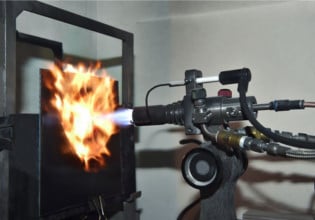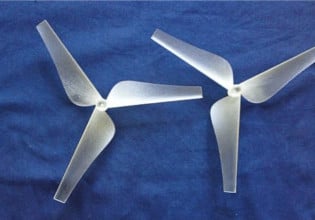Thermal Management Trends of 2020
The adoption of thermal management technologies continues to ramp up within the 5G and EV markets. Here’s a recap of the key trends dominating the thermal management space this year.
A new report from U.K.-based market research firm IDTechEx spotlights this year’s most notable thermal management trends and events, revealing an opportunity-heavy market poised to grow even more in 2021 and beyond.
IDTechEx’s report focuses on thermal management applications for electric vehicles and 5G smartphones and infrastructure—both critical target markets for thermal component and material suppliers.
This year in the EV sector, several battery fires and associated vehicle recalls have highlighted the need for more effective thermal management solutions. IDTechEx reported that more than 10,500 battery electric vehicles and plug-in hybrids were recalled in China after seven original equipment manufacturers suffered fire hazard events from January to October. General Motors alone recalled over 68,000 Chevrolet Bolt electric vehicles after fire incidents.
These events point to the demand for technologies designed to prevent cell overheating and detect and contain thermal runaway in EV applications. The adoption of liquid-cooled battery systems is becoming increasingly popular, this year used in Nissan’s Ariya and Honda’s e line and Porsche’s Taycan.
Additionally, more EVs are using heat pumps to redirect excess battery heat and ambient air to the vehicle’s main cabin. In 2020, most new EV models included heat pumps installed, including Volkswagen, Hyundai, Mini, Vauxhall Motors, and Tesla’s new Model Y line and upcoming 2021 Model 3 releases.
Source: IDTechEx, 'Thermal Management for Electric Vehicles 2020-2030'
In the 5G space, IDTechEx reports that 2020 has led to the emergence of new thermal material solutions for the booming 5G smartphone and telecommunications infrastructure markets.
Specifically, thermal interface materials, heat spreaders and thermal insulation materials are solutions suppliers can use to address overheating and other issues in 5G smartphones.
Vapor chambers have been one such solution used to improve heat spreading processes in smartphones. However, graphite heat spreaders are still used in many high-end smartphone models, including Samsung’s Note 20 and Apple’s iPhone 12 releases.
At the same time, this year marked the release of new thermal materials for 5G applications. Dow, Henkel and W. L. Gore & Associates all unveiled new thermal material products for 5G smartphones and network infrastructure.
Source: IDTechEx
IDTechEx’s report also spotlights three noteworthy mergers and acquisitions happening in the industry this year:
-
July 2020: Unifrax announced the acquisition of Rex Materials Group, a provider of thermal components and material solutions. To Unifrax—a global provider of specialty fibers and inorganic materials for high-temperature applications—the acquisition will expand its portfolio of high-temperature thermal components and expand its manufacturing capabilities. (Terms of the deal were not disclosed.)
-
October 2020: Honeywell Aerospace acquired Rocky Research, which provides thermal testing equipment and custom design solutions for commercial, industrial and defense industries. The acquisition enables Honeywell to adopt Rocky Research’s applications to reduce the size, weight and power of Honeywell’s technology for aircraft electrication, unmanned and autonomous aerial vehicles and other systems. (Terms of the deal were not disclosed.)
-
October 2020: CAVU Group, a provider of thermal management and temperature-monitoring solutions, announced the acquisition of Latent Heat Solutions, which provides thermal management systems for commercial battery energy storage applications. CAVU will acquire the company’s assets, resource and customer contracts, expand production capabilities and merge advanced technologies. (Financial terms of the deal were not disclosed.)
IDTechEx also cited a new partnership between Airbus and KULR Technology Group, announced in October. Through the agreement, KULR will provide its passive propagation resistant design technology to Airbus engineers for researching battery safety in defense and space applications.
KULR is set to present its latest developments in the thermal management market at the upcoming LD Micro Main Event Conference on Dec. 15.








